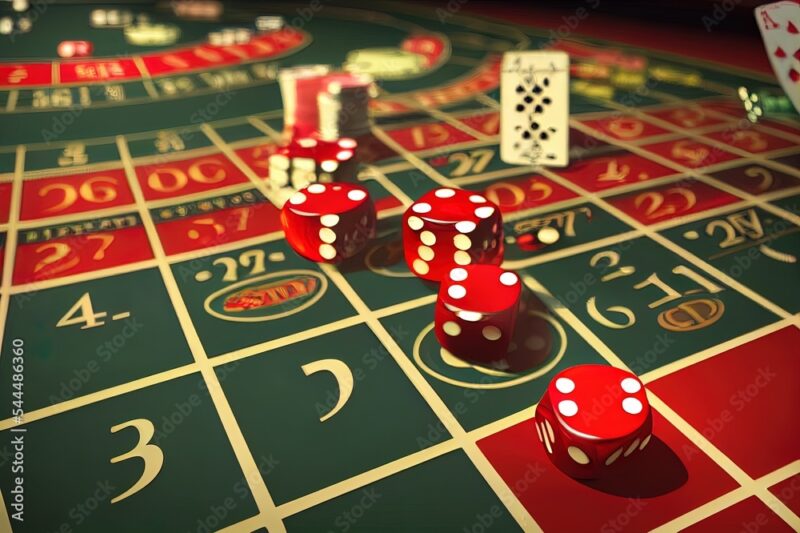In the vibrant world of casinos, where the clatter of chips and the spin of roulette wheels create an intoxicating atmosphere, luck dances a tantalizing tango with probability. For many, a night at the gaming tables is infused with thrill, a rush that comes from placing a bet and daring fate to intervene.
Yet beneath the gleam of slot machines and the anticipation of a winning hand lies a complex web of mathematics that governs these games of chance. To navigate this landscape, players must grapple with the notion that while fortune may bestow unexpected favors, the underlying principles of probability wield significant influence over the outcome.
This article delves into the intricate relationship between luck and probability, unraveling the mysteries that can transform a casual player into a more strategic participant in the exhilarating realm of casino gaming.
The Role of Chance in Casino Games

Chance plays a pivotal role in the exhilarating world of casino games, infusing unpredictability into every roll of the dice, turn of a card, or spin of a wheel. Each moment carries the weight of uncertainty, where luck can shift the tides for players in an instant.
Consider the rattle of the roulette ball as it dances around the wheel, seemingly taunting enthusiasts with each fleeting moment before settling on a number. The thrill lies not just in the game mechanics but in the emotional rollercoaster that comes with betting on fate.
While strategies can certainly enhance a players odds, the intrinsic randomness of these games often dictates the outcome, weaving a tapestry of suspense where seasoned gamblers and novices alike find both hope and despair in their pursuit of fortune. Ultimately, it is this delicate interplay between skill and chance that captivates players, drawing them back time and again to the vibrant atmosphere of the casino.
Probability Basics: A Guide for Gamblers

Understanding the fundamentals of probability is a game-changer for anyone stepping into the vibrant world of casinos. At its core, probability is the mathematical expression of how likely an event is to occur, often represented as a fraction or percentage.
For gamblers, grasping these concepts can unveil the intricate tapestry of chances that govern games from roulette to poker. Each spin of a wheel, each draw of a card, holds within it a realm of potential outcomes, some more favorable than others.
For instance, while you might fancy your chances of hitting the jackpot on a slot machine, it’s essential to recognize that the odds are typically stacked against you. By delving into the mechanics of probability, gamblers can make informed decisions, recognizing when to take risks and when to walk away—a crucial balance in navigating the unpredictable thrill of gambling.
Thus, understanding these basic principles not only enhances your gameplay but can also enrich your overall casino experience.
Understanding House Edge: The Casino’s Advantage

Understanding the house edge is pivotal for anyone venturing into the vibrant world of casino games. This concept, often cloaked in mystery, represents the mathematical advantage that casinos hold over players, ensuring profitability in the long run.
At its core, the house edge is a percentage that varies from game to game—three percent here, five percent there. What’s fascinating is that it’s not merely a static number; it fluctuates based on game variations, player strategy, and even the rules of individual tables.
For instance, while blackjack may offer a lower house edge with optimal play, slot machines can soar to much higher percentages, luring players in with the glimmer of jackpots. This advantage doesn’t doom players to inevitable loss but rather emphasizes the importance of understanding the odds.
Thus, savvy gamblers engage not just in luck but in strategy, weighing their bets against the lurking edge that shadows every roll of the dice or turn of the card.
Conclusion
In conclusion, understanding luck and probability is crucial for anyone engaging in casino games, as it allows players to make more informed decisions and navigate the uncertainties inherent in these environments. While luck often plays a significant role in short-term outcomes, a solid grasp of probability can enhance your overall strategy and potentially lead to more favorable results in the long run.
By appreciating the mathematics behind games and recognizing the importance of responsible gaming, players can enjoy the thrill of the casino while mitigating risks. For those looking to deepen their understanding further, resources like https://spy-casino.com/ can provide valuable insights and information. Ultimately, striking a balance between luck, skill, and probability is the key to a rewarding casino experience.

